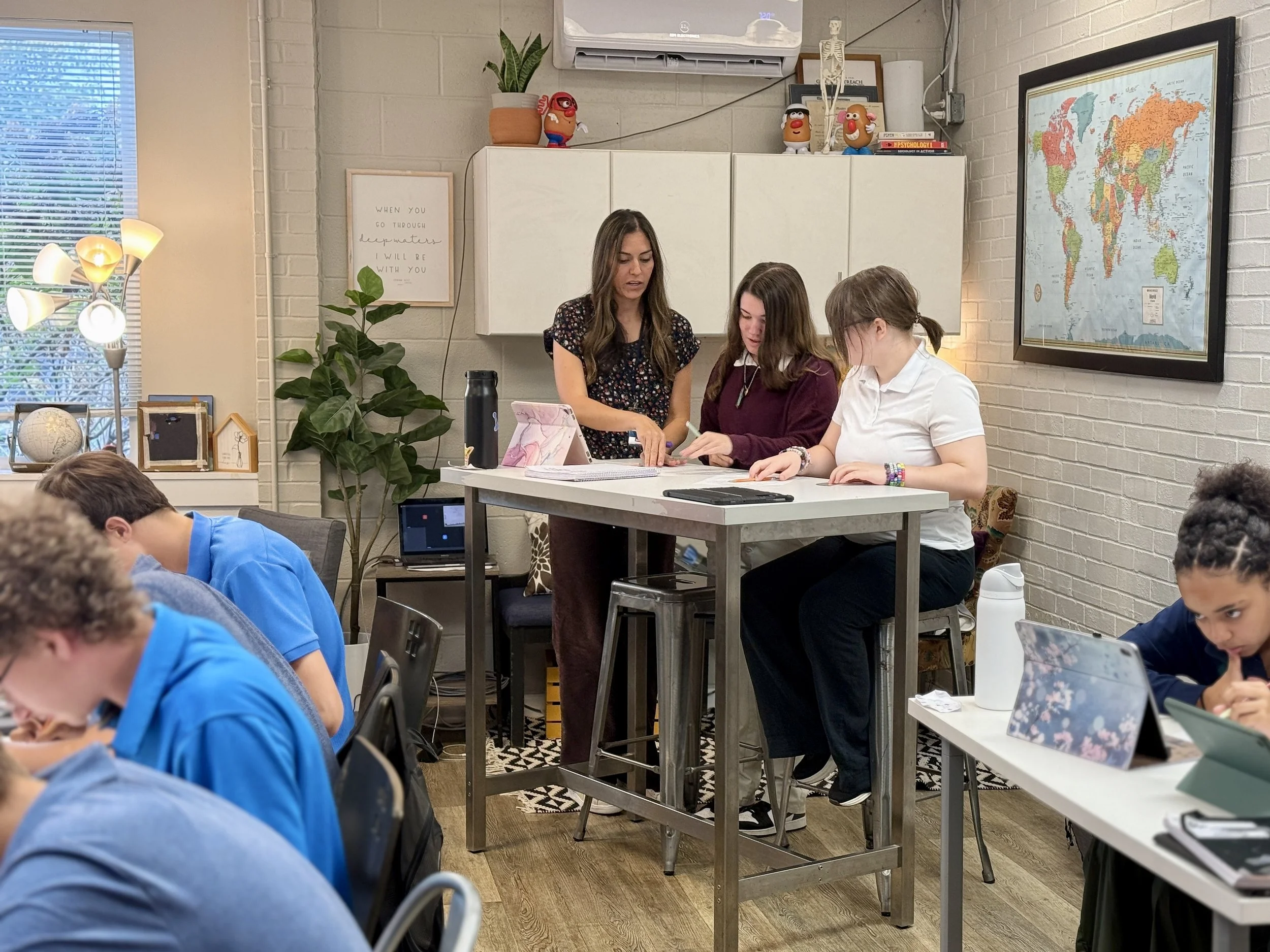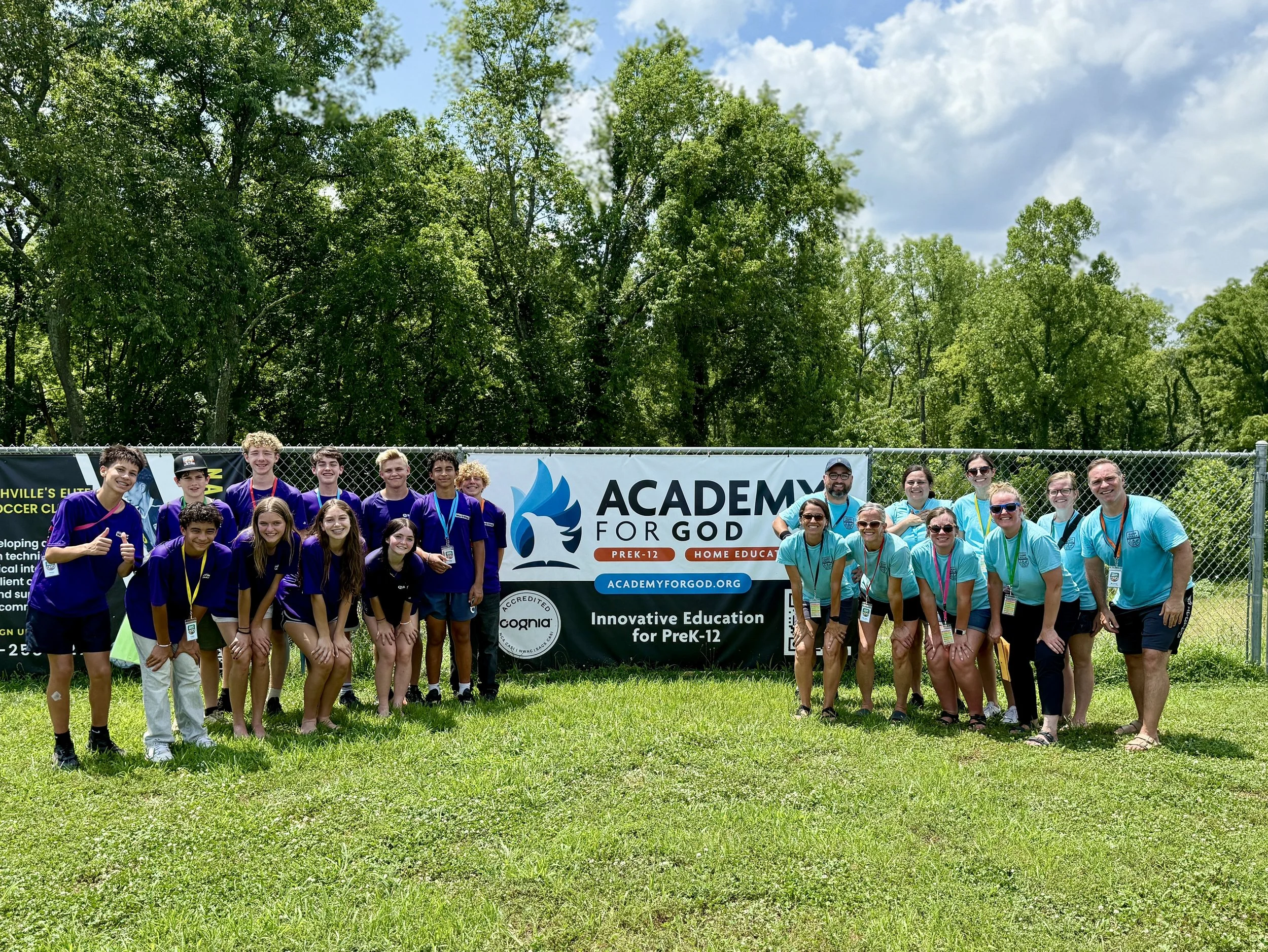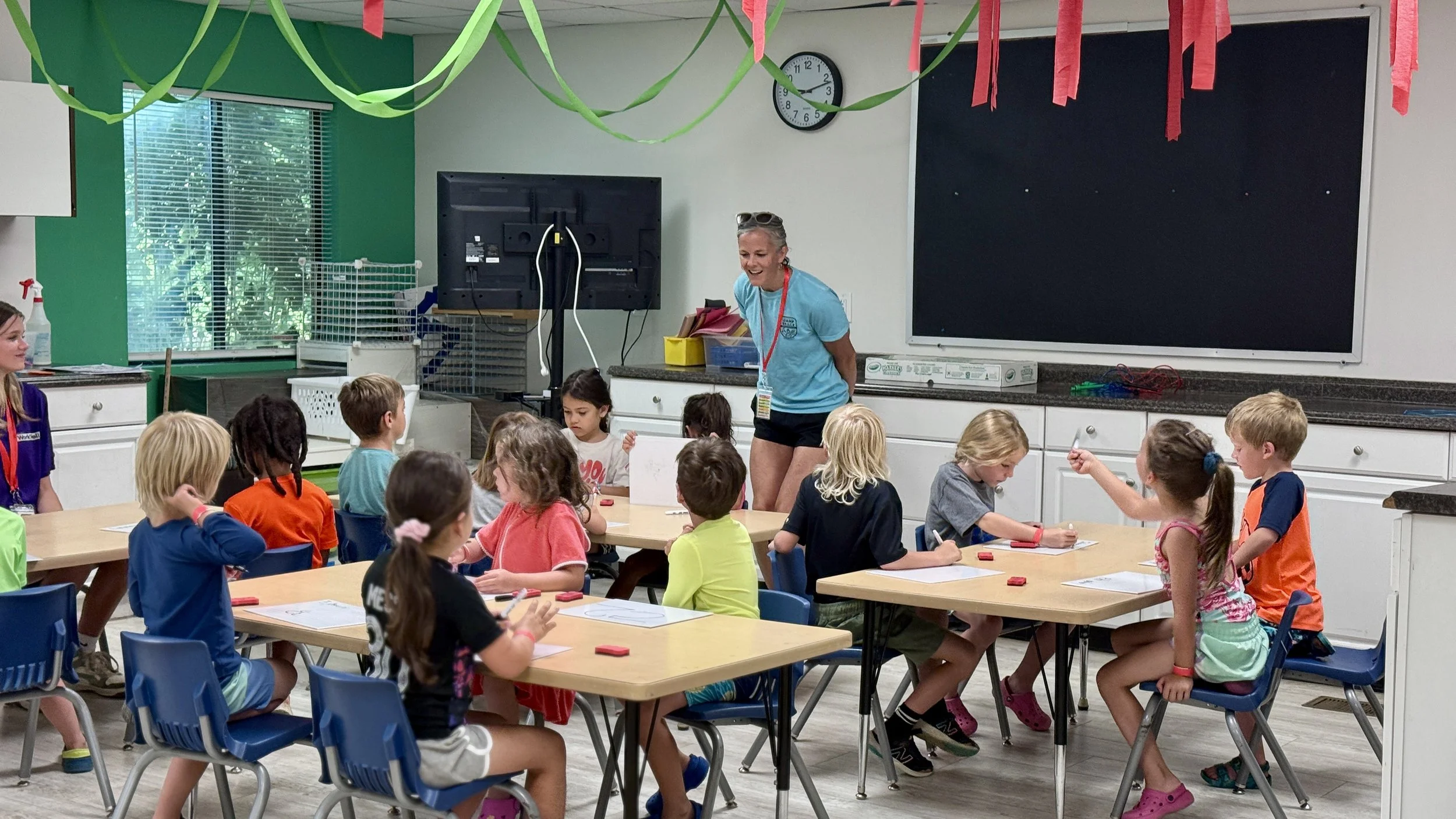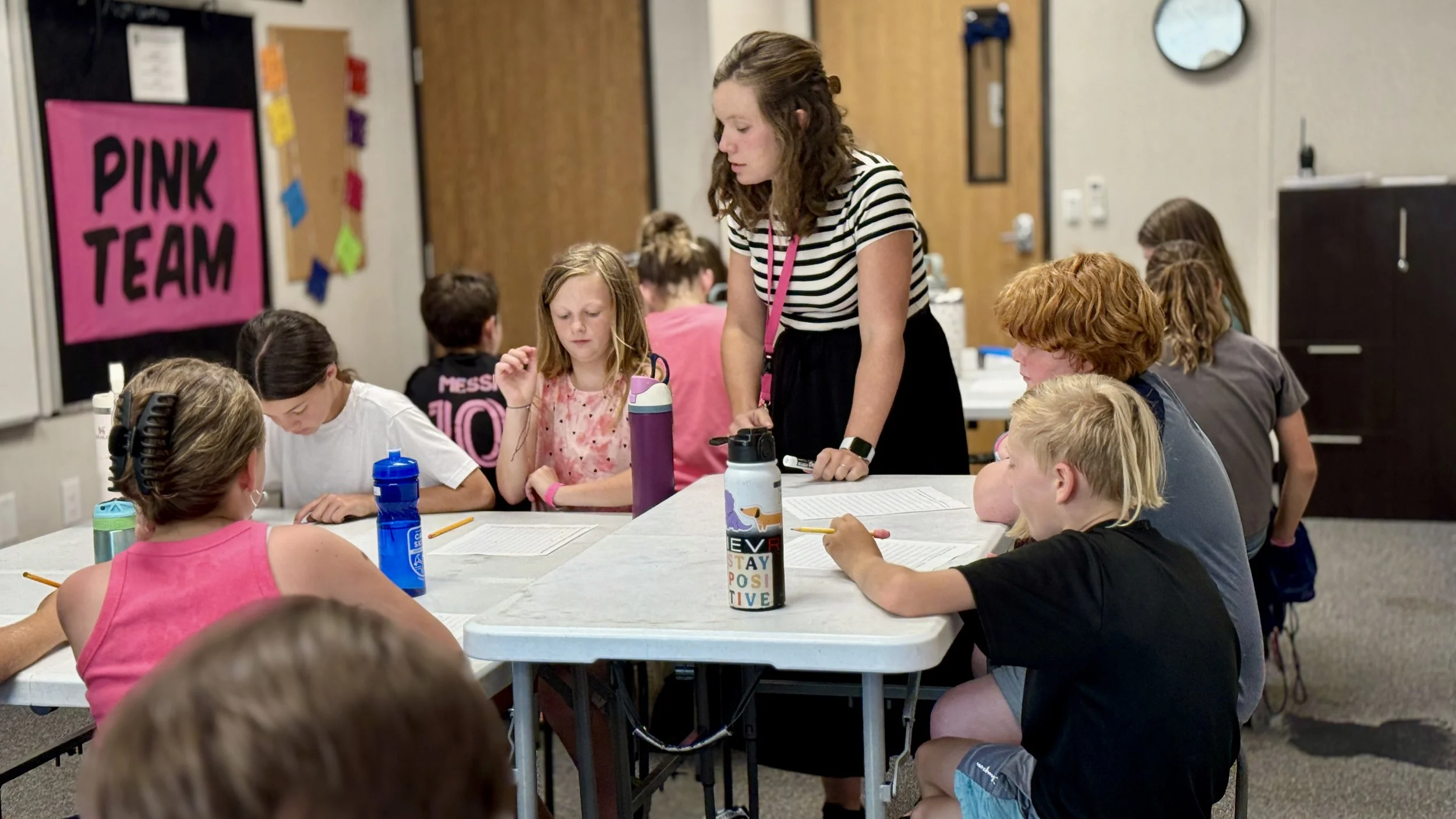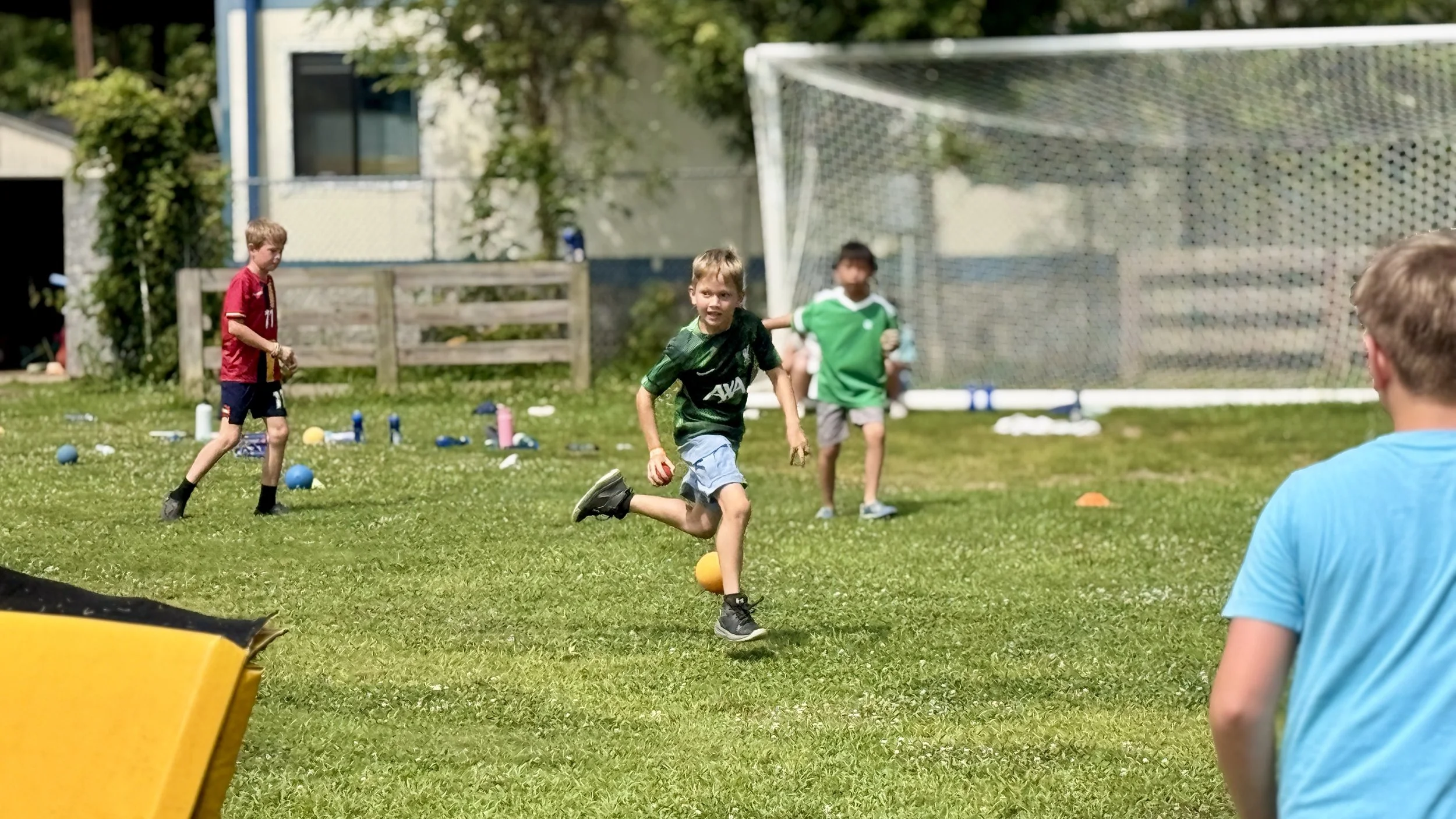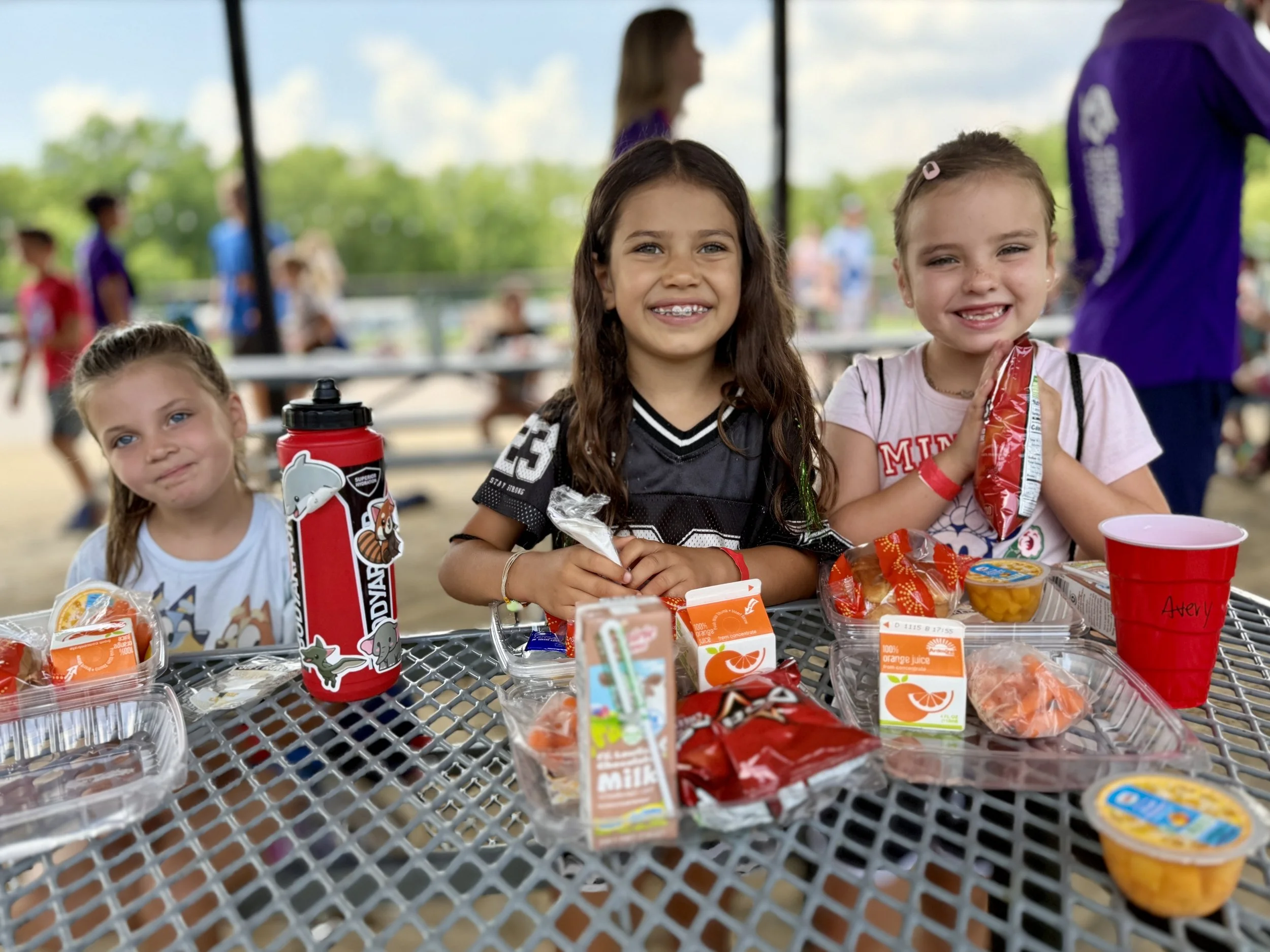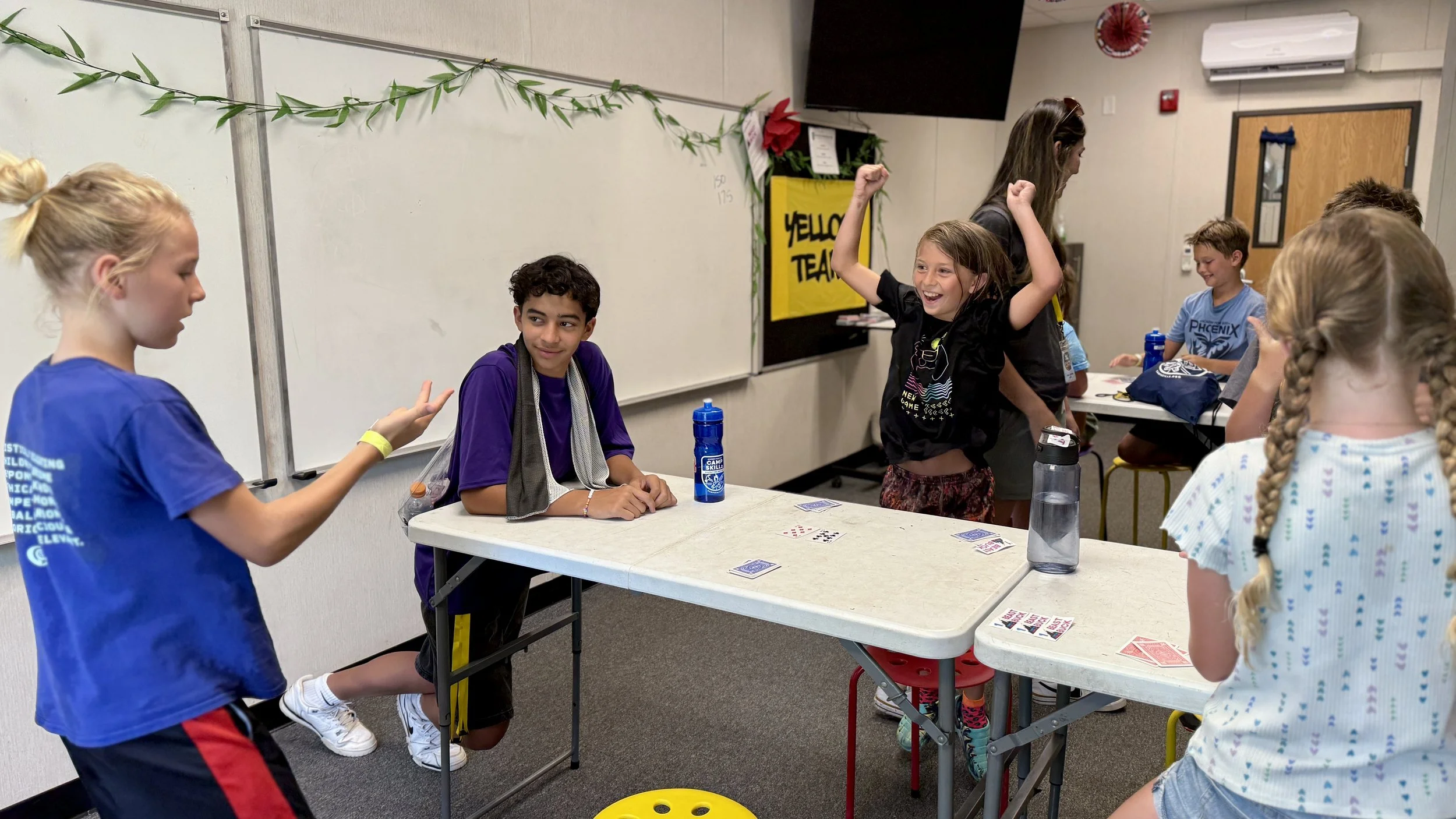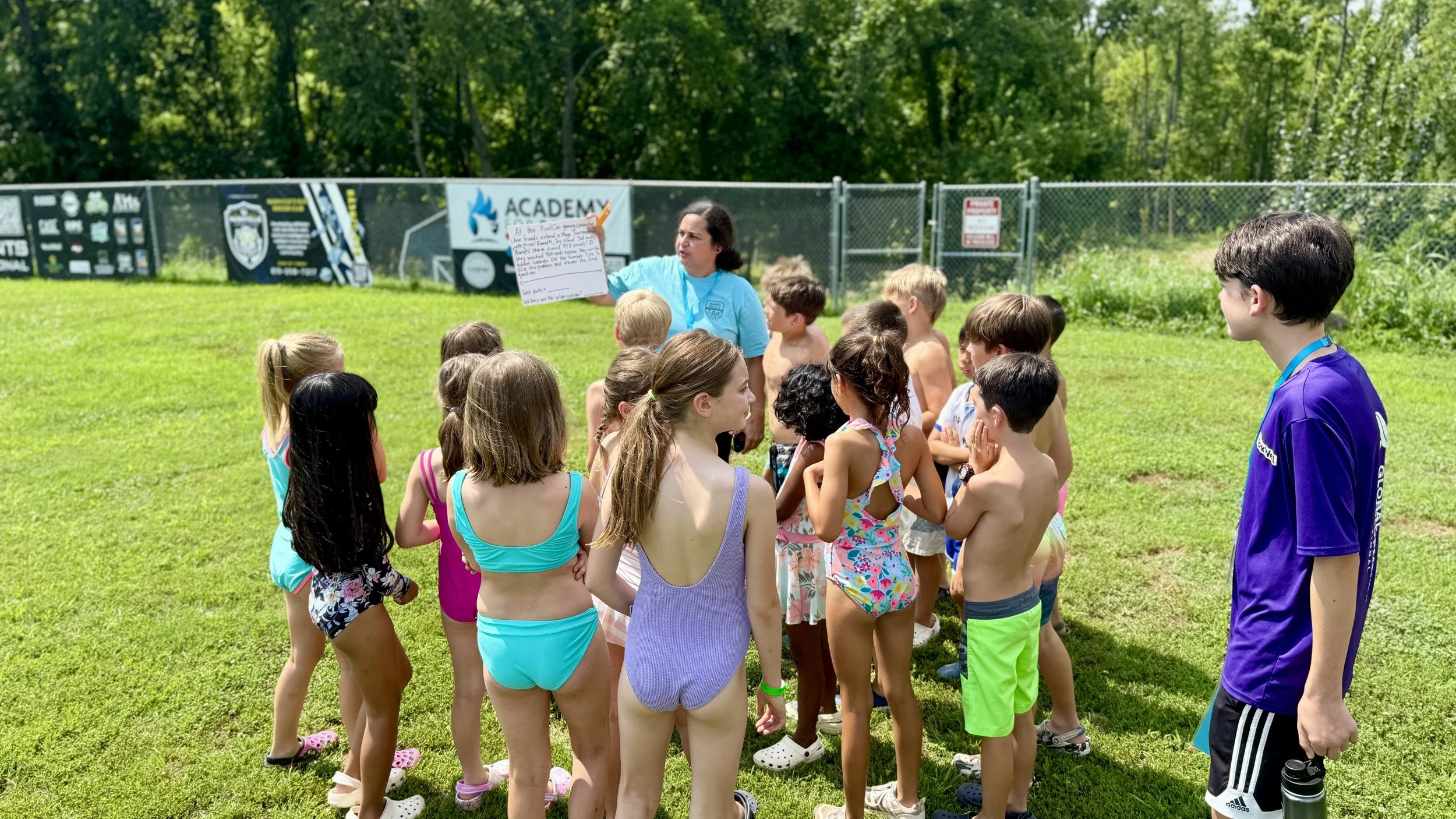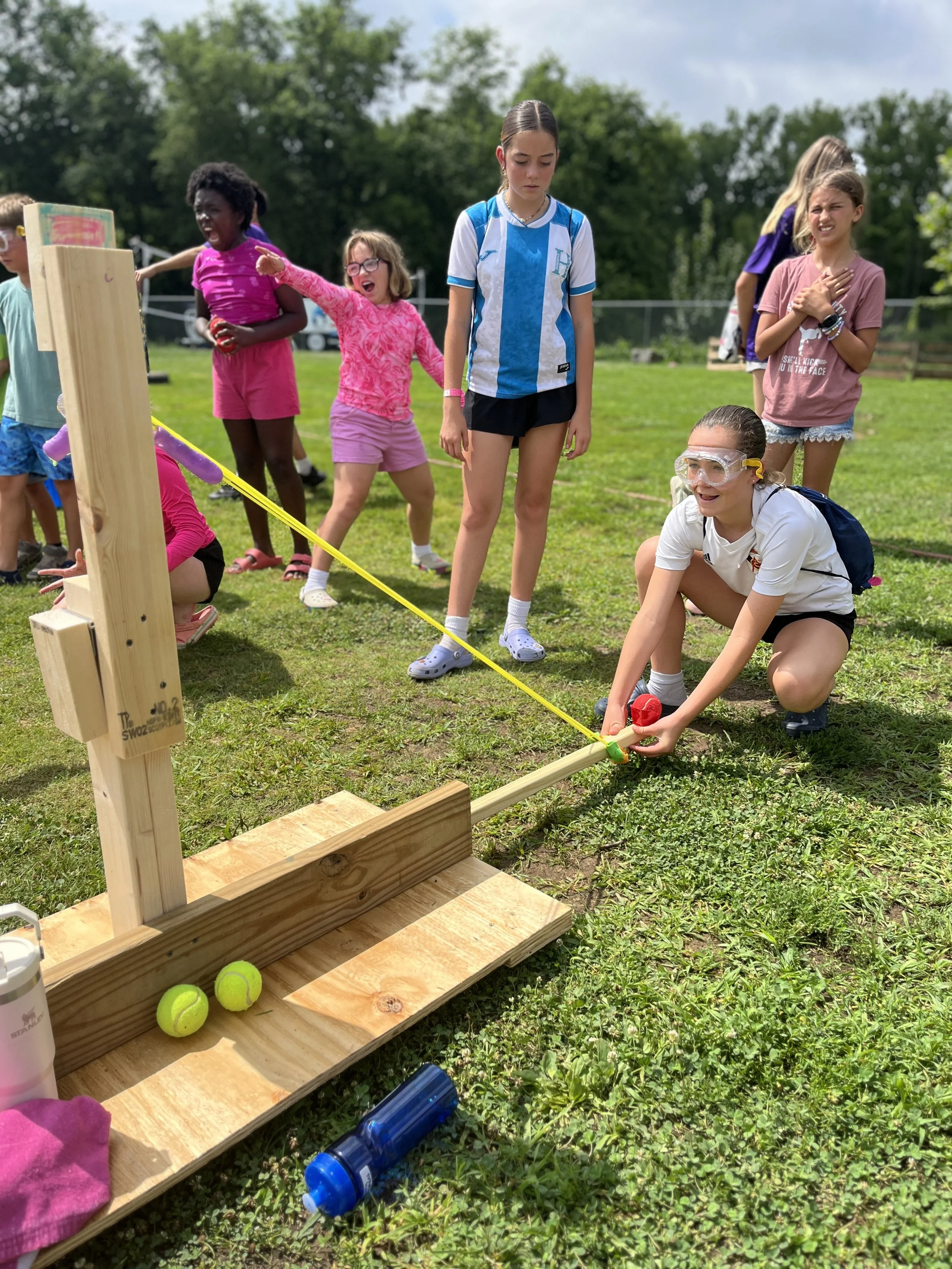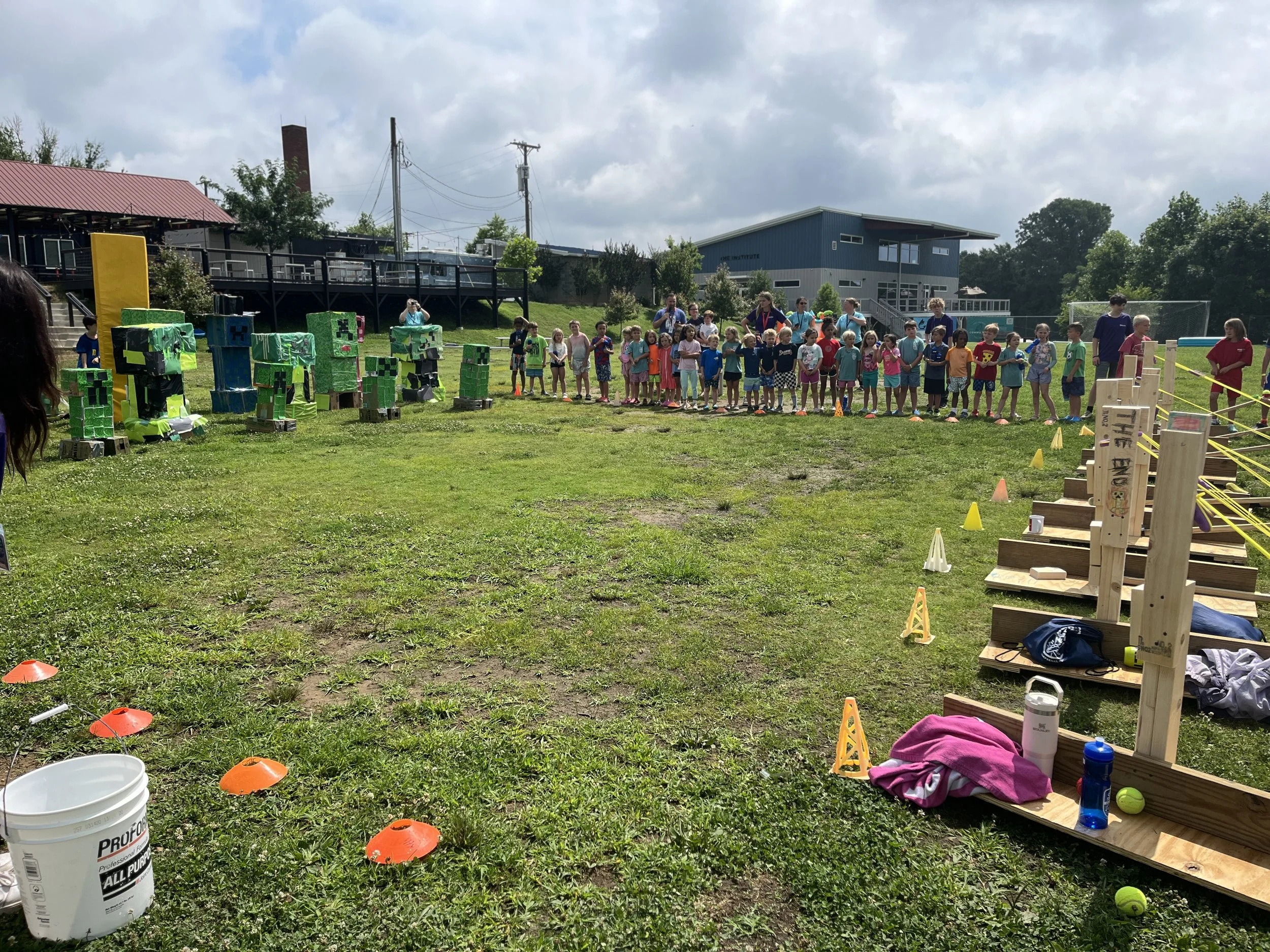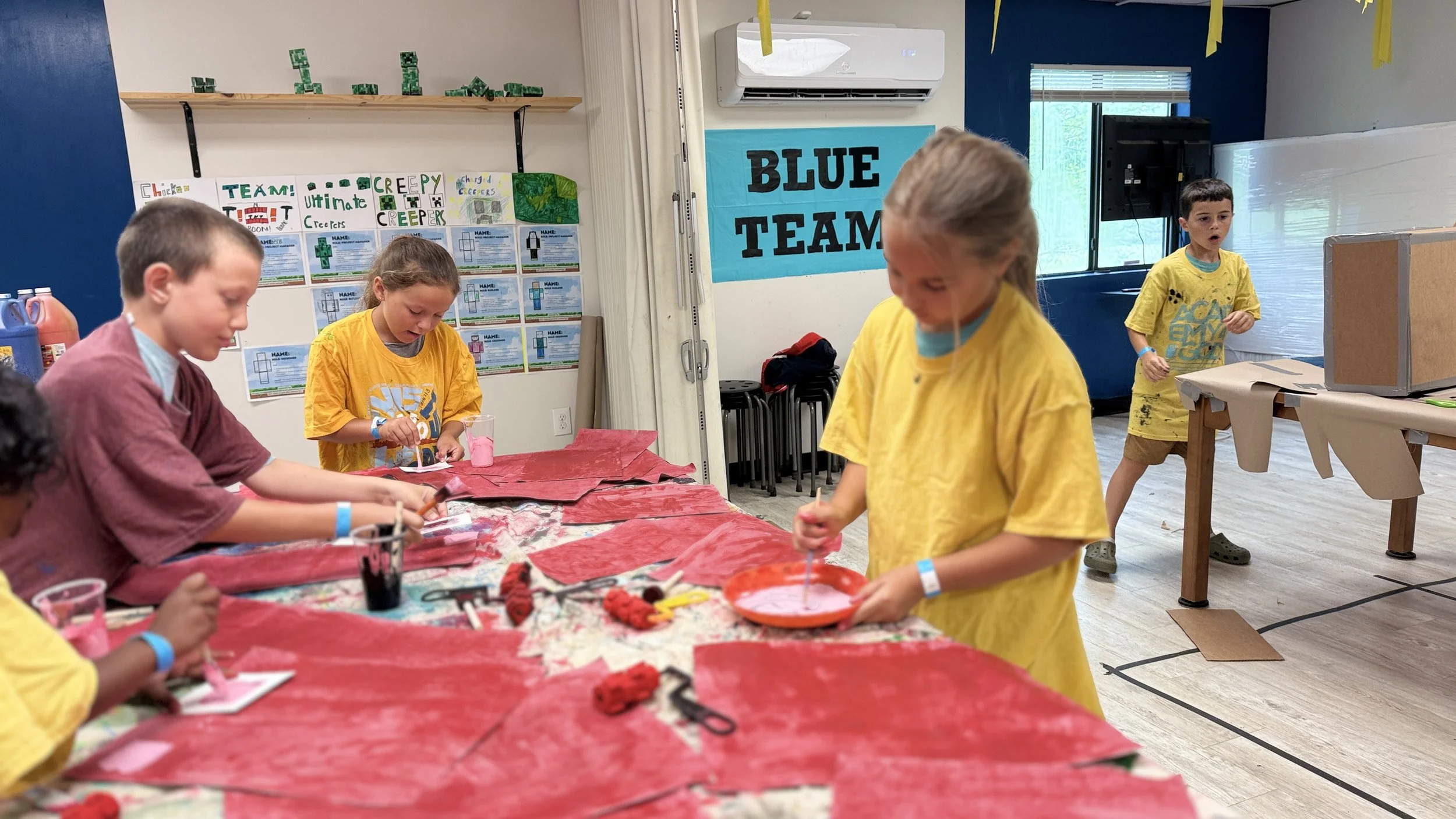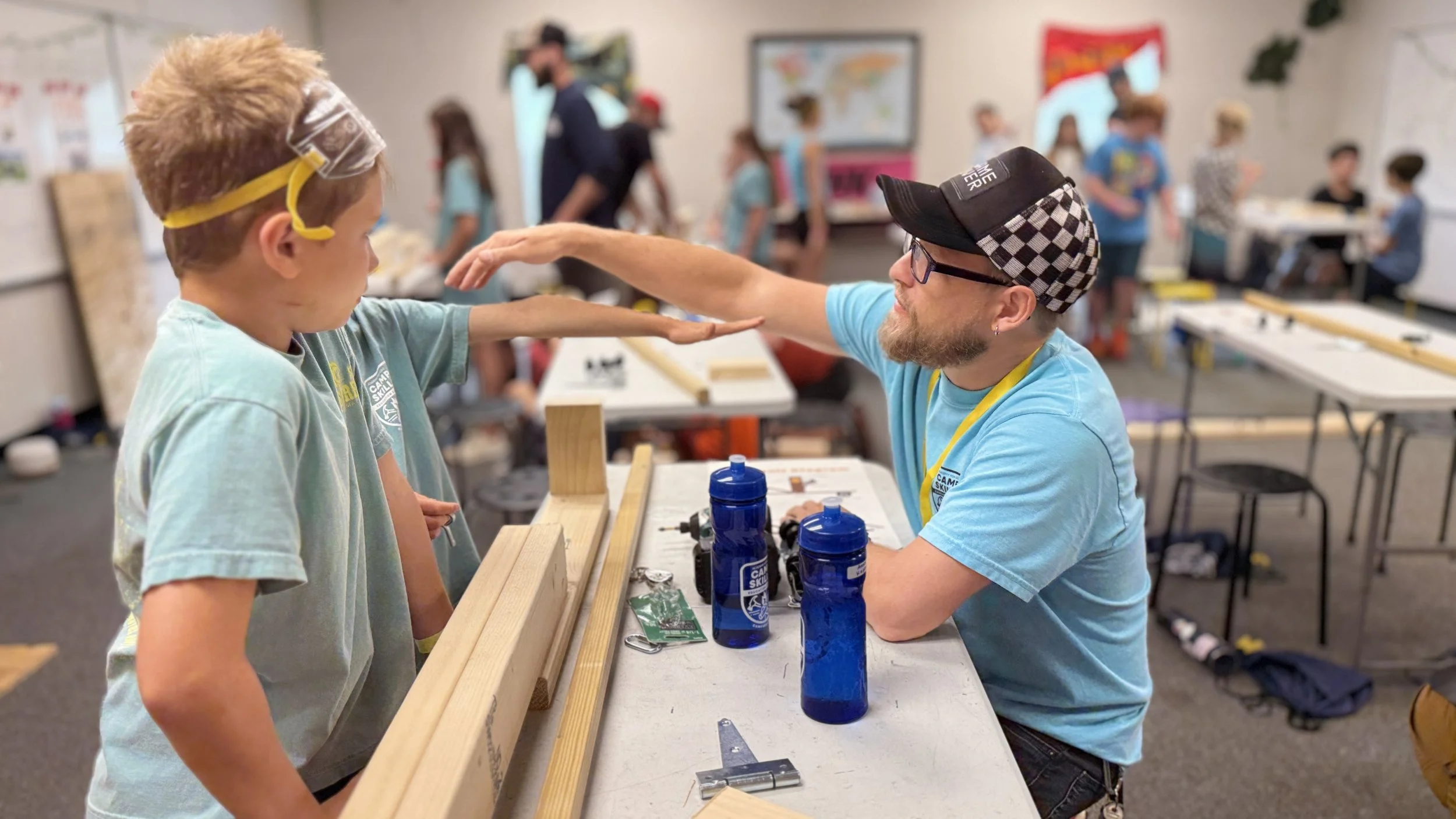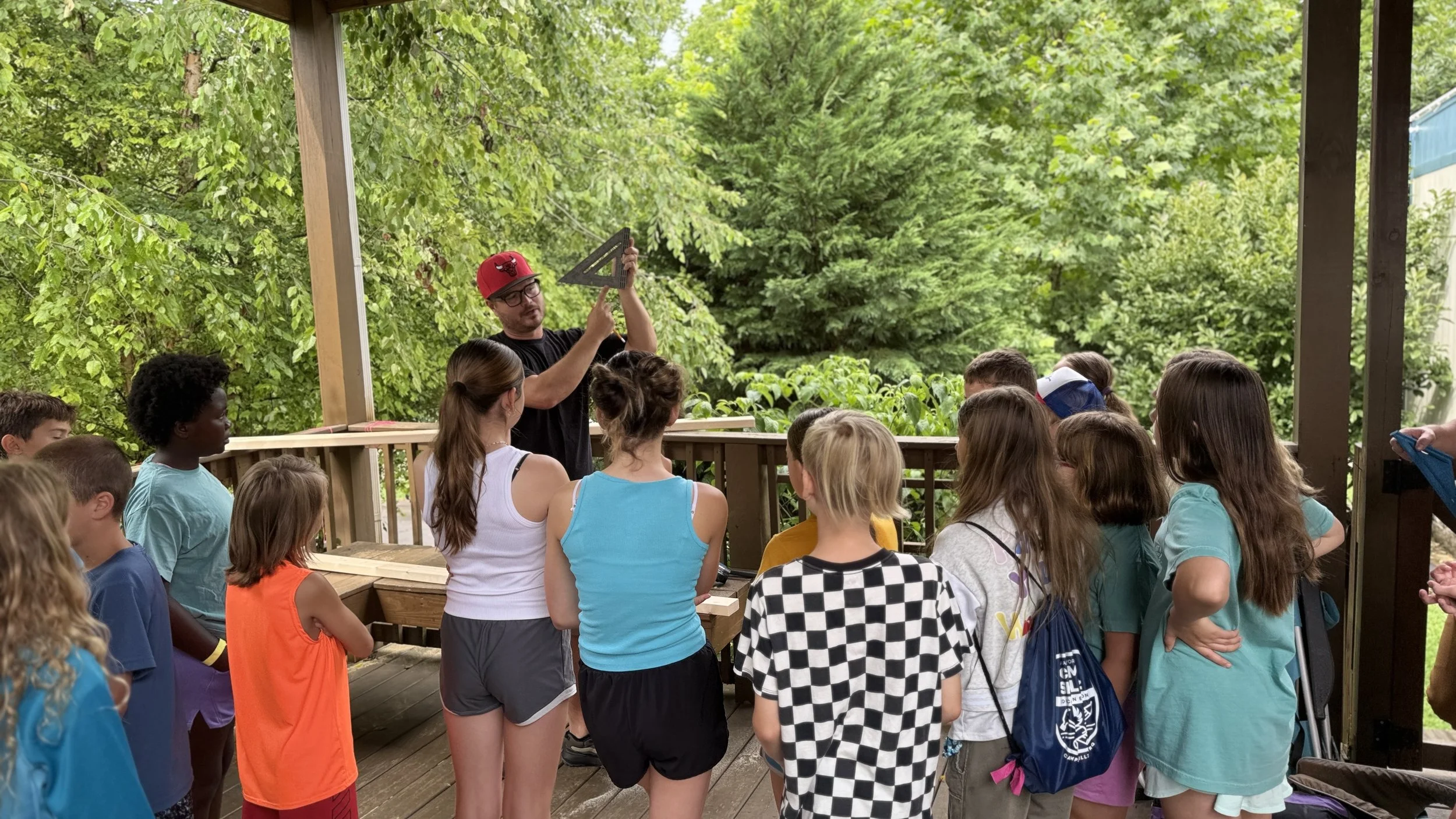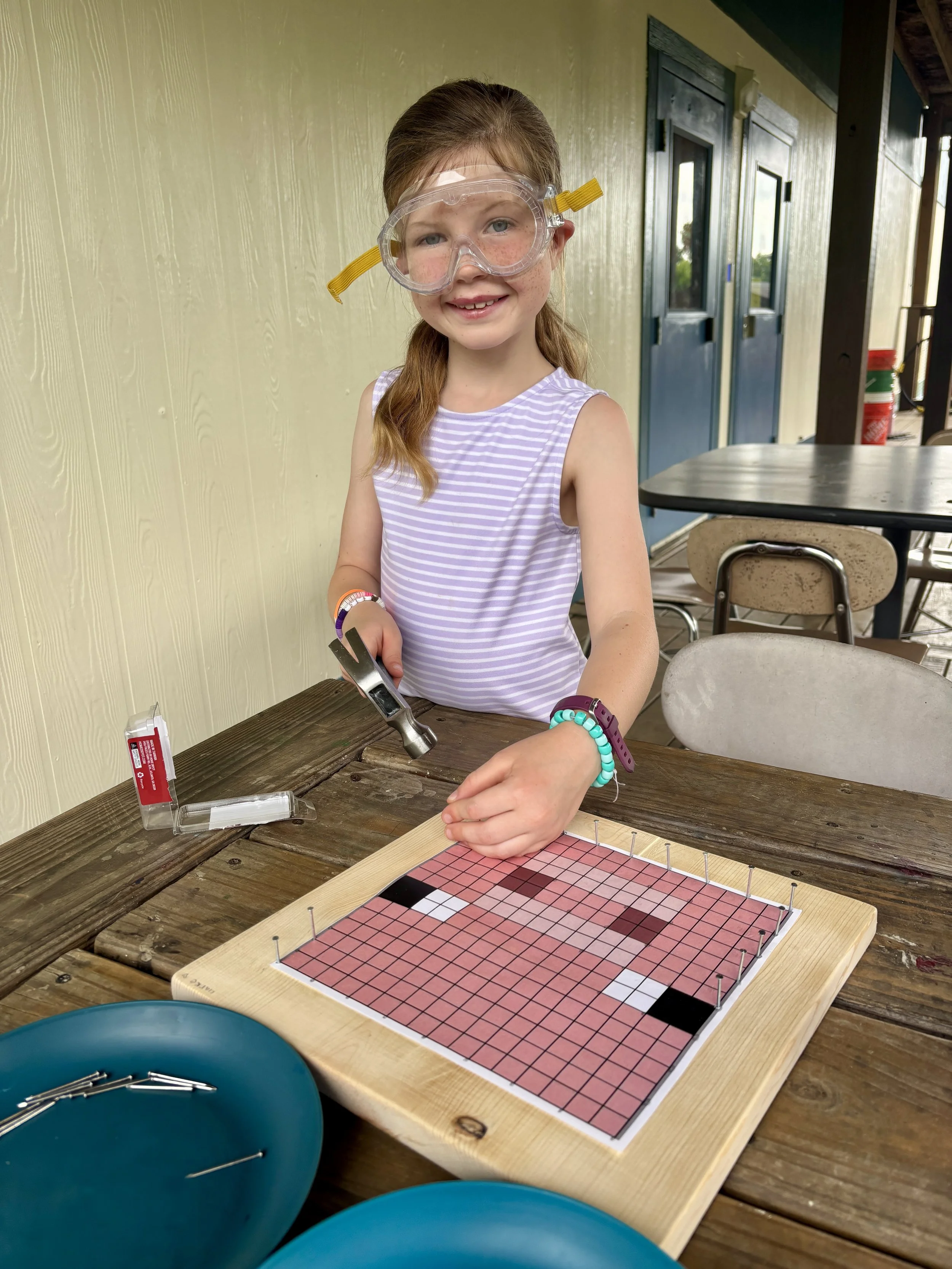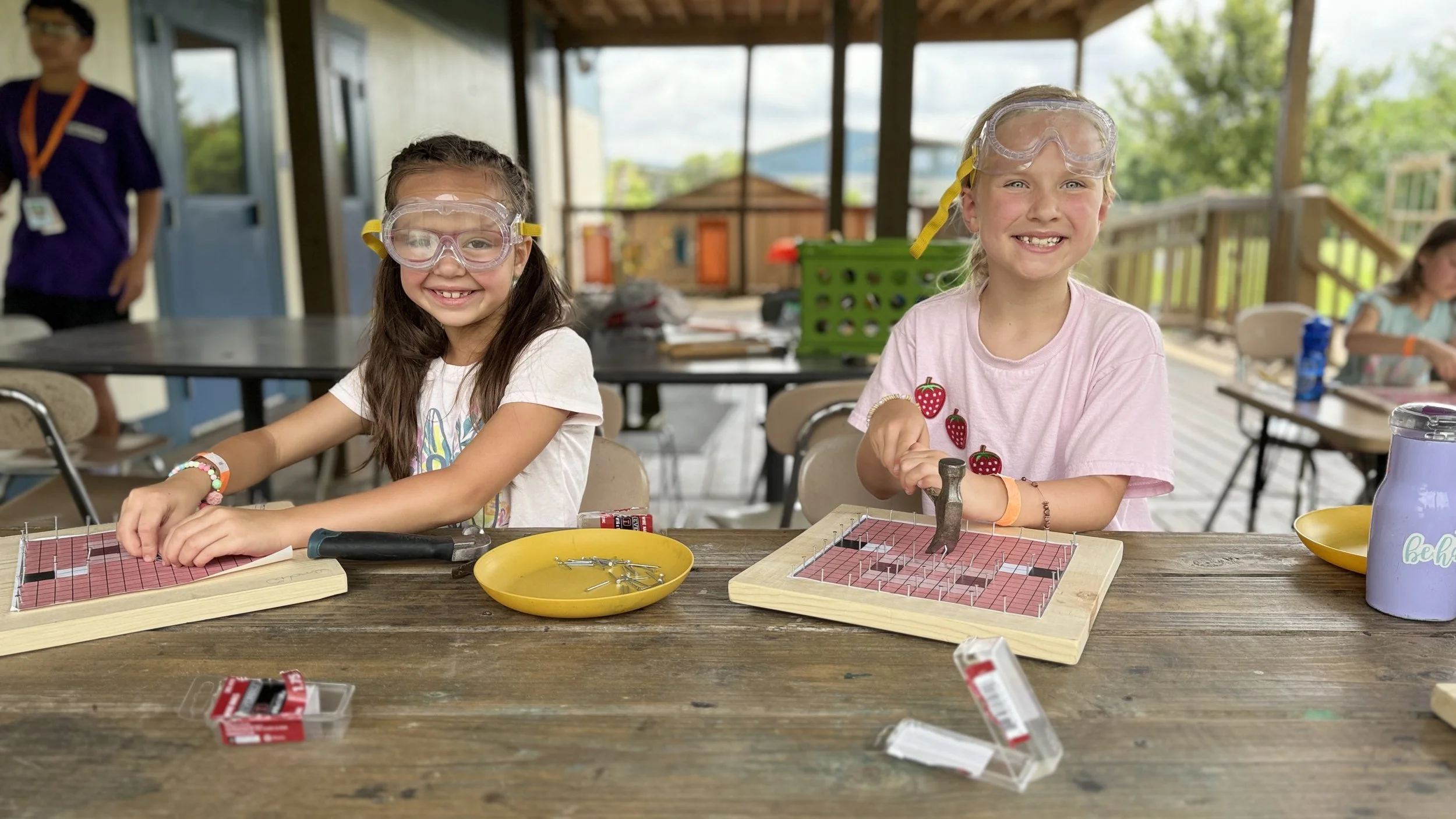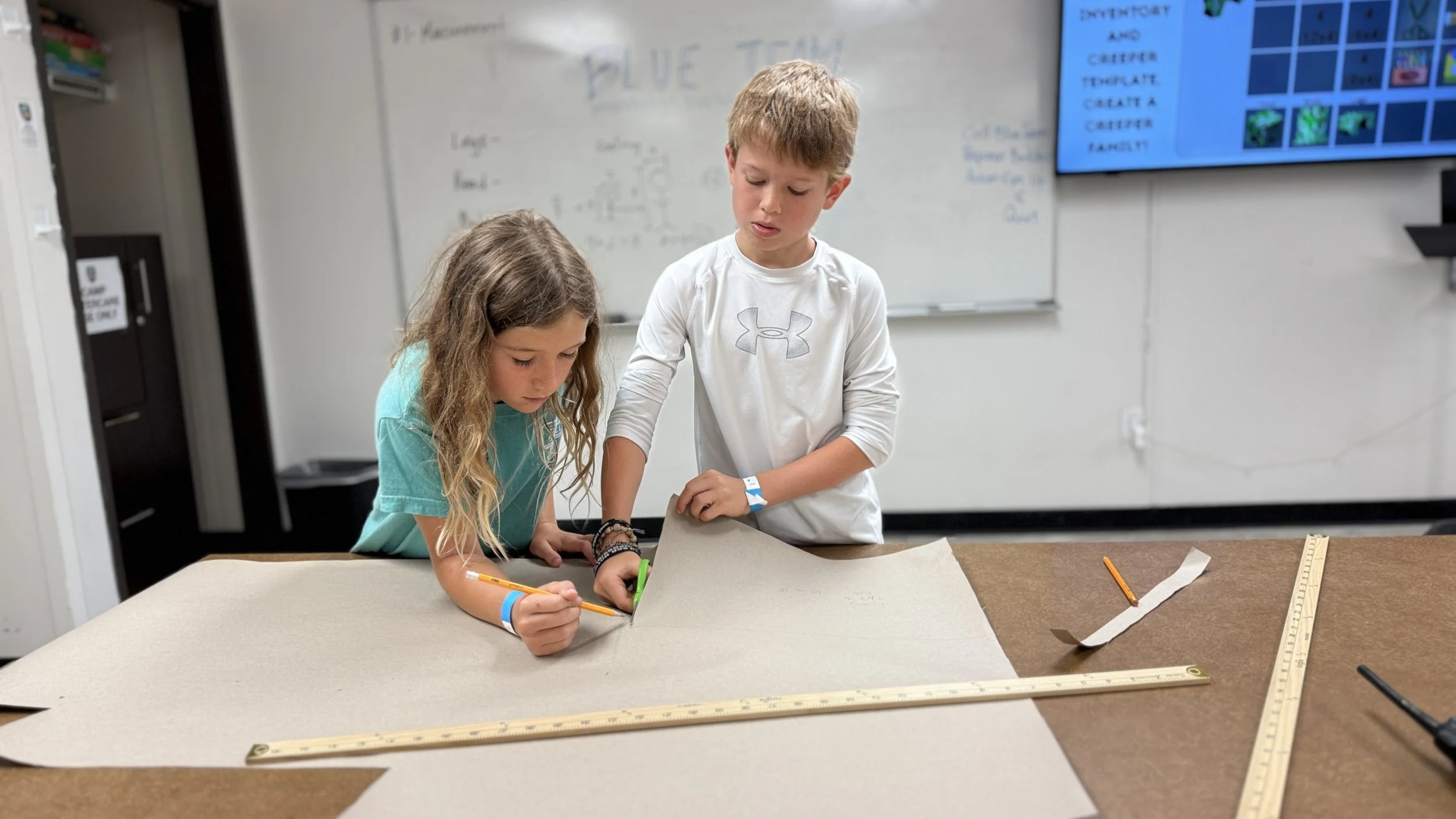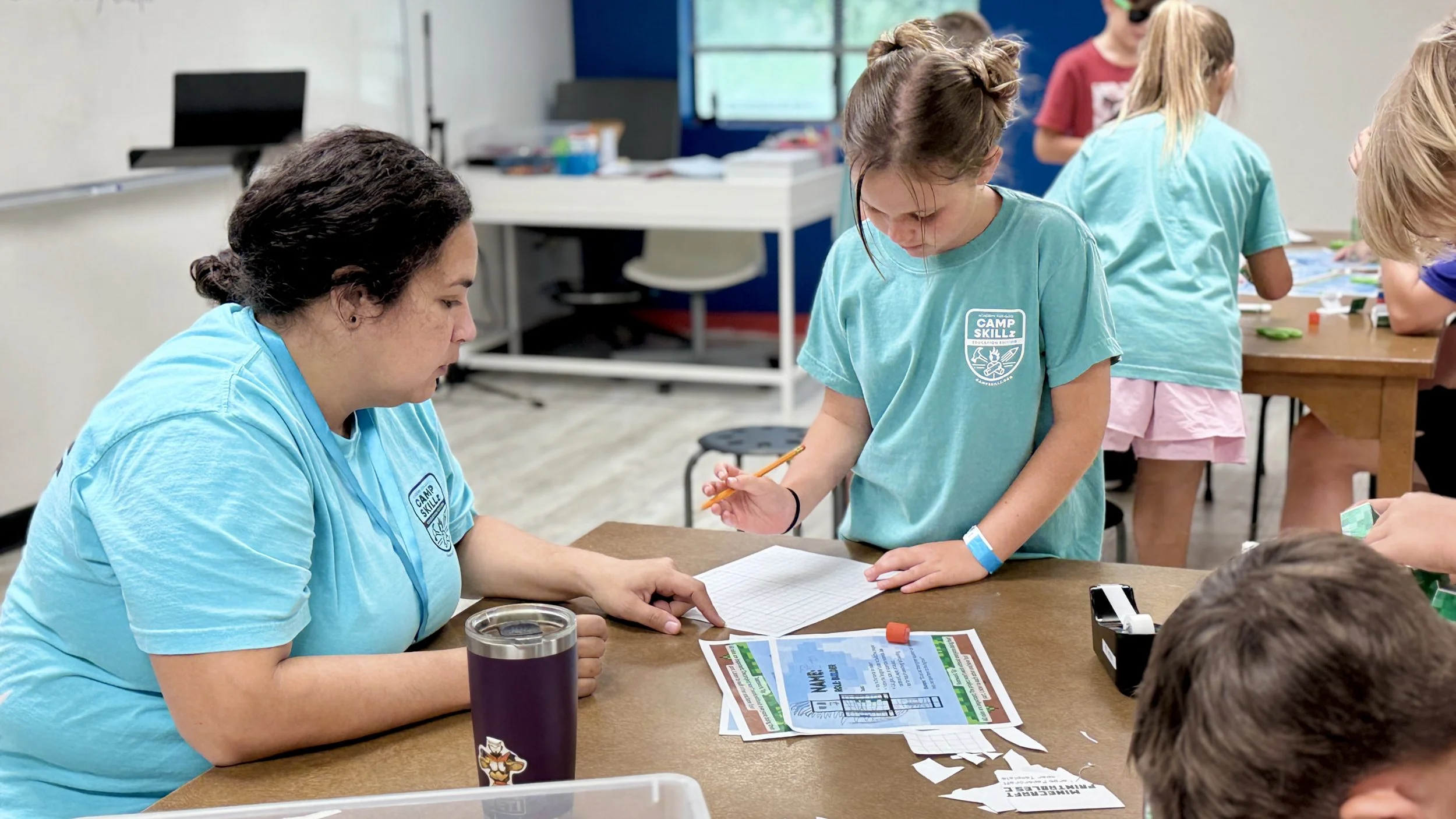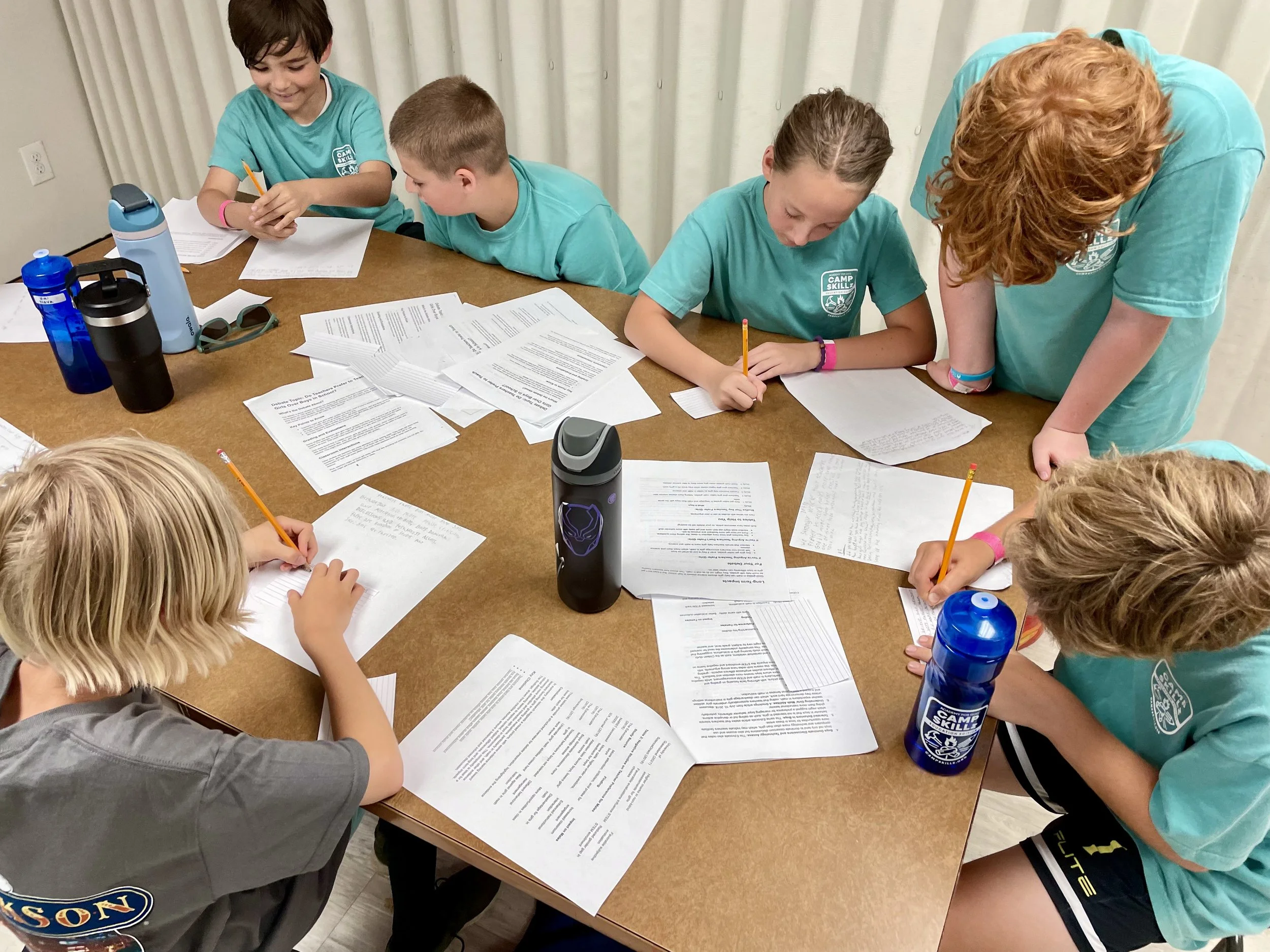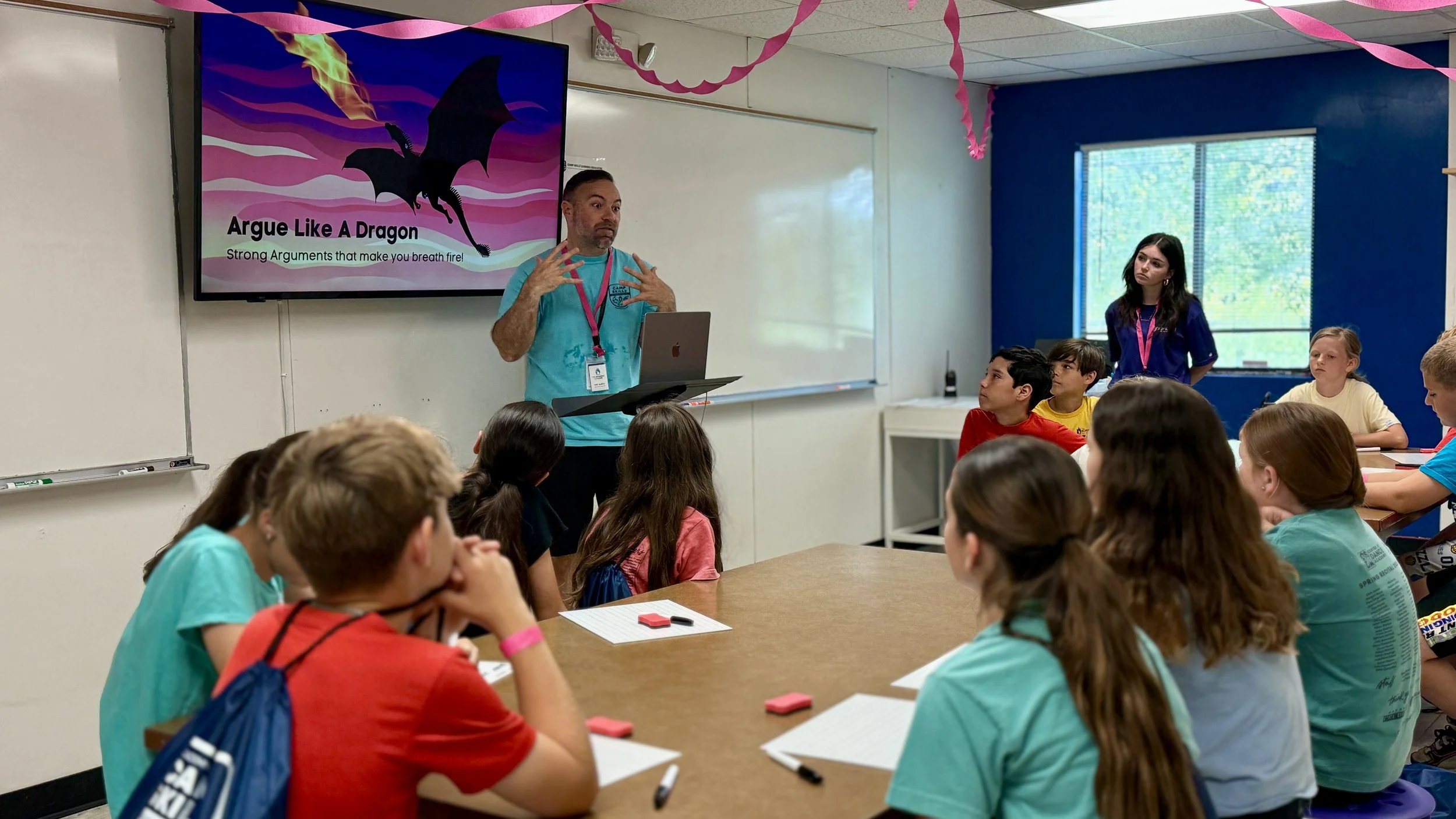New School Playground Install Complete
This fall, our Academy campus was enhanced with the addition of a brand-new playground—made possible through the generosity of two Academy parents. Their gift is more than new equipment; it is an investment in our students, our community, and the daily rhythms of learning and play that shape our student’s learning environment.
The playground features four pieces from Happy Backyards, a playground company located in Franklin, Tennessee. We are grateful for the opportunity to work with Tom and the entire Happy Backyards install team, whose professionalism, care, and attention to detail helped make this project a reality. From planning to installation, their team ensured the playground was safe, durable, and perfectly suited for our elementary students.
Since its completion, the playground has quickly become a favorite part of the school day. These moments of play are a vital part of learning and development.
Research continues to affirm the importance of recess and playground time for elementary-aged children. According to the American Academy of Pediatrics, regular recess helps improve students’ focus, classroom behavior, and social skills. Studies also show that children are more attentive and productive in the classroom after recess than before it, highlighting the strong connection between physical activity and academic readiness.
Beyond academic benefits, the playground provides daily opportunities for social and emotional growth. Students practice cooperation, communication, problem-solving, and resilience. They learn to take turns, navigate challenges, and include one another—skills that extend far beyond school and into every area of life. These shared experiences help foster confidence, empathy, and a sense of belonging among our students.
We are deeply thankful to the Academy parents whose generosity made this playground possible. Their investment will serve our school for years to come, blessing countless students with opportunities for healthy movement, creativity, and joy. We are also grateful for our partnership with the team at Happy Backyards who brought this vision to life with excellence and care.
We hope this new playground offer students a space to play, grow, and thrive!
Why Students Need to Memorize Math Facts
And Why It’s Not “Rote”. It’s Foundational.
According to the NAEP (often called the Nationʼs Report Card), 61% of U.S. 4th graders scored below proficiency in mathematics in 2024. That number rises to 78% by 8th grade. As leaders, educators, and parents, we must be asking the question: What is causing this math crisis?
Over the past two decades there has been a prevalent misconception in many education circles, that memorizing math facts (those simple addition, subtraction, and multiplication facts that we want at our students’ fingertips) isn’t necessary. That students don’t need to know the multiplication table because they can always use other strategies… or just grab a calculator.
Though the solution to the math crisis is not singular, one thing is clear: this philosophy has left our students wildly unprepared. Modern education research is showing us the real story – that students who have memorized their math facts into their long-term memory learn math faster, understand it more deeply, and feel more confident doing it. Memorizing the facts isn’t frivolous busywork, it’s completely foundational to a student’s mathematical competence and long-term success.
The Power of Long-Term Memory
When students learn math (or anything for that matter), that learning starts in the working memory. This is the part of the brain that handles information that is coming from “outside” the learner and must be consciously thought about and processed. The working memory is extremely limited! Once we exceed the limits of 3-5 pieces of information, the cognitive load becomes too heavy and learning does not take place.
In contrast, long-term memory is virtually limitless. It can hold an incredible amount of information, and the more a student has stored there, the easier it is for them to learn new things without being overwhelmed. This is where we want the math facts stored! It becomes an incredible tool that the student can access instantaneously while problem solving. When math facts are stored in long-term memory and can be recalled automatically, they place no additional burden on working memory — the mental workspace where new learning and problem-solving occur — and actually free up cognitive resources, making that learning more effective.
In short, these two memories (working and long-term) work together. The things stored in long-term memory help students think critically, creatively, and effectively about the information that has entered the working memory. When students know their multiplication facts “by heart”, they have more brainpower to attend to the problems in front of them.
Knowing Math Facts Frees Working Memory (and Calculators Don’t)
So, now we know that working memory is like a student’s mental whiteboard. It only has room for a few ideas at a time.
When a student knows that 7×8 = 56 instantly, that fact takes up zero space on the whiteboard because it’s already stored in long-term memory.
But if they have to stop and figure it out (“Let’s see… 7×7 is 49, so 7×8 is 49+7…”) they’ve already used limited brainpower before even tackling the actual problem in front of them.
That’s why knowing these facts is so important. It reduces the cognitive load and frees the brain to focus on complex problem-solving and creative reasoning, the kind we want them doing in algebra, geometry, and beyond (Ding et al., 2019). Automatic recall isn’t about speed for speed’s sake; it’s about accessing higher-level thinking.
But Can’t We Just Give Kids Calculators?
A calculator can’t reduce the entire cognitive load for students. In fact, relying on one adds steps: Using the device, typing correctly, interpreting the result, and deciding whether it makes sense. Each of those eats up more working-memory space and creates new chances for error.
When facts are known, students can reason fluidly. When they’re not, even basic problems can feel like wading through mud. Take the following example: When students have to factor a number in algebra, such as 48, they need to quickly know that all of their options are 4x12, 6x8, 3x16, 2x24, and 1x48. A calculator can help a student find the factor pairs, but it will be much slower, use up a lot of working memory, and the student will not be confident that they have produced all the possible factors without first checking every single number on the calculator, which is extremely cumbersome. When students haven’t committed basic knowledge to long-term memory, their multi-step problem solving remains labored.
Math Is Hierarchical – Facts Are the Bottom Rung for Later Success
Mathematics builds like a staircase. If the lower steps aren’t sturdy, students struggle to climb.
Weak multiplication fact recall hinders students in many topics moving forward:
Fractions: finding least common denominators and simplifying fractions depend on fluent multiplication and division recall.
Algebra: factoring trinomials, expanding binomials, and balancing equations all rely on multiplication fact recall. Like the example mentioned above, students factoring 48 need to quickly know that all of their options are 4x12, 6x8, 3x16, 2x24, and 1x48.
Problem solving: estimating, checking reasonableness, and spotting errors are much harder when you don’t have access to the numbers in long term memory.
In short, multiplication facts are not the destination, they’re the bridge. Without them, higher level math becomes an uphill battle.
But Isn’t Rote Memorization Bad?
You may have heard that rote memorization is bad for learning. That is only true if “rote” means memorizing without meaning or understanding. When we talk about knowing math facts, we are talking about memorizing the facts after the students have gained understanding of what the operation is, and how it works. Once the student has that understanding, they are ready to get those facts stored in their long-term memory through consistent, repeated practice. This isn’t meaningless repetition, it is strengthening of the neural pathways and paving the way for mathematical fluency. It is similar to athletes who create muscle memory after lots of repeated practice with a physical skill.
Bringing it all together
Knowing math facts doesn’t hinder understanding, it enhances it. What used to bog the student down now lets them connect to math concepts confidently, and reason effectively. When it comes down to it, helping students memorize math facts isn’t about drilling them with mindless practice, it’s about giving them access to a powerful tool. A deep well of information they can pull from at a moment’s notice. When the facts are memorized and stored in that long-term memory, students gain the capacity to do robust, complex, mathematical problem-solving.
Citations and resources for further exploration:
Baker, A. T., & Cuevas, G. (2018). The importance of automaticity development in mathematics. Georgia Educational Researcher, 14(2). Retrieved from https://files.eric.ed.gov/fulltext/EJ1194585.pdf
Ding, Y., Li, H., Liu, M., & Zhang, Q. (2019). Effects of working memory, strategy use, and single-step mental addition skills on multi-step mental addition. Frontiers in Psychology. https://doi.org/10.3389/fpsyg.2019.00148
An introduction to cognitive load theory - THE EDUCATION HUB
Written by Janae Castro
God is Able: Help Us Extend Academy Education Across Borders
This is a very special year for the Academy Remote Learning program: five of our students are graduating with us in the spring! Some of these students have been with us since the start of this program. We wanted to highlight one of these students in particular, to help show the good fruit that is coming from the education these youth are receiving.
Victor Lubega is a young man who has excelled through the Academy Remote Learning program. His teachers all know him to be enthusiastic, communicative and hard working. He has received Exemplary Student awards several times in his years with us.
One practical benefit of being with our program is that it has allowed Victor to remain close to his family through his teenage years. Students who attend local schools in Uganda are often gone for 9-10 hours a day. This increases at the secondary school level; they might be gone from 6:00am to 10:00pm at night! This is an incredibly taxing system that keeps them away from parents. Our cooperatives in East Africa have expressed many times how grateful they are to have their children near them, to be able to look out for them and invest in them as they are getting their education remotely.
Another benefit of this Academy program is that Victor will graduate with strong literacy skills. Previous graduates from the Remote Learning program have entered the Institute for GOD college, and have a huge advantage compared to their peers who attended local schools in Uganda. They know how to critically engage literature, organize their thoughts into essays, and write clearly with strong grammar. As people of scripture, we know how important it is to be able to engage the written Word. It is a key part of human development, enabling us to image God as He intended.
Finally, Victor has been able to pursue his interest in electrical engineering, and get practical experience in this career field. This year he is completing his senior internship with Community Works, a program of GOD Int’l that focuses on infrastructure development in the 3rd world. With Community Works manager James Lasater supervising him remotely, Victor was able to work with an older mentor on the ground on several projects this semester. The first was to install solar energy systems to every house on the GOD Int’l campus, enabling personnel there to access power even when the local electricity goes out. This kind of career jumpstart is something we’ve been able to offer our students both locally here in Nashville and abroad. It saves time and money after graduation for young people like Victor who are determining a career path. Victor now has practical experience in the field of solar energy, and a confidence that he would like to continue down the path of an electrician.
There are so many wonderful things happening in the lives of our remote students. But we do have some very practical needs remaining for this year. At the beginning of the school year we received some generous donations that helped cover a portion of student scholarships, yet there is a remaining need of $17,950. This covers tuition, technology access and academic support to our students in Uganda and Morristown. It would relieve parents from shouldering the burden of this year’s school fees alone. Would you consider investing into the lives of these young men and women? Join us in offering them a safe and nurturing school environment, and putting them on a path for a bright future.
The Inaugural Academy for GOD Phoenix Open
A Day of Fellowship, Fun, and Purpose
The Hermitage Golf Course was the perfect location for The Academy for GOD Phoenix Open — a day that combined friendly competition, community connection, and a shared mission to support Christ-centered education. From the first tee to the final putt, the atmosphere was filled with excitement, laughter, and purpose as teams came together to make history at this inaugural event.
We are deeply grateful for every individual and organization that made the Phoenix Open such a success. With 19 hole sponsors and a full lineup of participating teams, the event exceeded expectations in every way with teams already asking for the date of next year’s event.
Thank you to our Phoenix Sponsors — City Electric Supply (@cityelectricsupplyusa) and Richard & Southern (@richardsandsouthern) — whose generosity and partnership will greatly impact The Academy. We also extend special appreciation to our Title Sponsors, Legacy Tree Foundation (@legacytreefoundation) and MCH Nashville (@mchnashville), whose support continues to strengthen our school’s mission and impact. Your investment helps us continue to serve families through Christ-centered education at The Academy for GOD, providing students with both academic excellence and spiritual formation.
The tournament brought out some impressive play on the course, with participants enjoying a mix of competitive fun and lighthearted camaraderie throughout the day. Congratulations to our winning team from Preferred Rate (@glovermattl) for taking home the top spot!
We would also like to recognize Details Nashville for capturing the day so beautifully. Their photography showcased not only the stunning scenery of Hermitage Golf Course but also the heart behind the event — the smiles, high-fives, and moments of gratitude that made the day truly special.
To every sponsor, team, and supporter who joined us, thank you for helping make this first event such a success. Together, we’re building something lasting — not just on the golf course, but in the lives of students and families we serve every day at The Academy for GOD.
We look forward to seeing you all next year for another incredible day on the greens!
Summer Learning at Camp Skillz: Education Edition
This summer, The Academy for GOD hosted Camp Skillz: Education Edition, a dynamic day camp designed to bridge the gap between school years with purpose and play. We recognize that the summer months can be a time to maintain momentum, deepen understanding, and prepare students for the next school year. That’s why we created Camp Skillz: Education Edition, a summer program designed to carry children forward in both academic content and personal development through an engaging, project-based approach.
Each week featured a unique theme and academic focus, inviting campers into hands-on learning experiences that sharpened skills, built character, and made summer memories!
Week 1: Born to Be Bold
Academic Focus: Language Arts
Inspired by The Descendants, Week One focused on identity, character, and the power of good choices. Through storytelling, journaling, dramatic play, and debate, campers explored what it means to be persons of integrity while strengthening essential language arts skills like reading comprehension, descriptive writing, and public speaking. The week culminated in song, skits, and debates performed in front of the entire camp!
Week 2: Builders of the Blockverse
Academic Focus: Science
The second week took inspiration from the creativity of Minecraft and launched campers into a world of design, engineering, and exploration. With a strong emphasis on the scientific method, students tested hypotheses, built models, and designed imaginative "block worlds" using real-world science principles.
From learning about force and motion to exploring simple machines, campers engaged in age-appropriate STEM activities that taught them to observe, question, test, and revise. Group collaboration was essential, with each team creating either catapults or creepers for the end of the week challenge. Don’t miss the photos below!
Week 3: Game On! Level Up!
Academic Focus: Math
Our final week of camp brought the energy of a MrBeast-style challenge arena to life! Campers dove into high-paced contests and games that required logic, pattern recognition, probability, and strategy. Week 3 ended with an epic obstacle course math challenge for all campers!
Learning with Purpose and Play
Across all three weeks, Camp Skillz was designed to develop not only academic skills but also confidence, creativity, collaboration, and character. Our Academy teaching staff created a fun and structured environment that allowed students to embrace summer learning with positivity.
Thank You for an Incredible Summer
Thank you to the families who entrusted us with their children’s summer camp experience. We believe our campers developed friendships, academic skillz, and memories to hold!
To all our campers: thank you for showing up, trying hard, being kind, and having fun. We can’t wait to see what next summer holds.
Until then—stay bold, keep building, and never stop leveling up!
Check out the photos below highlighting some of our favorite camp moments!



